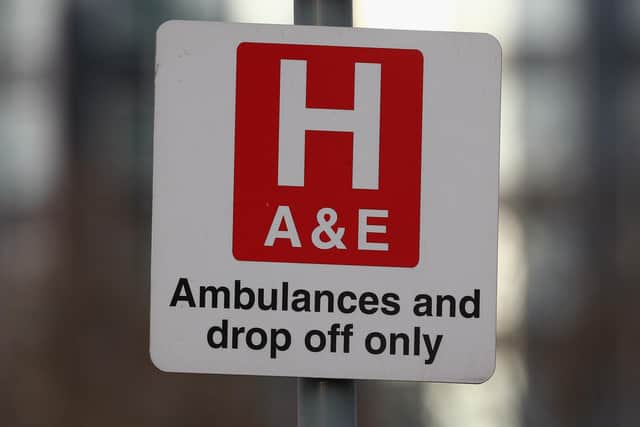A&E waiting times Leeds: NHS figures reveal worst hour of week to visit A&E at Leeds Teaching Hospitals NHS Trust
and live on Freeview channel 276
It comes as A&Es across England are at breaking point, with attendance reaching pre-pandemic levels in November and a record proportion of patients facing waits of more than four hours. Chancellor Jeremy Hunt has announced an additional £3.3 billion in NHS funding to deal with increased demand and soaring inflation, but health think tank the Nuffield Trust said it is too late "to have a meaningful impact this year".
NHS Digital figures show that the worst hour of the week to visit A&E at Leeds Teaching Hospitals NHS Trust was between 12am and 1am on Tuesdays in the year to March. Patients waited an average of six hours and 42 minutes to be either admitted to an inpatient ward, transferred elsewhere or discharged from hospital.
Advertisement
Hide AdAdvertisement
Hide AdMeanwhile, the shortest waits were between 9am and 10am on Mondays, when patients waited an average of three hours and 24 minutes. Of the seven days of the week, Monday was the worst day overall to visit A&E at Leeds Teaching Hospitals Trust, with patients waiting an average of four hours and 58 minutes, while Thursday was the best, when the average wait time dropped to four hours and 40 minutes.


Monday saw the highest average number of patients attending across the year, while Saturday saw the lowest. The figures come as the NHS deals with increasing pressures during the recovery from the coronavirus pandemic.
Separate NHS England figures show more than 30% of patients waited more than four hours to be seen at A&Es across England in November – a new record for the third month in succession. The Nuffield Trust said a significant factor is the growing number of patients taking up hospital beds as they wait to be discharged because support from health and care social services outside of hospital is not ready.
Health and Social Care Secretary Steve Barclay said he is supporting staff by "investing record amounts into health and social care, including committing an additional £8 billion for health and social care in 2024-25". Mr Barclay added that some 7,000 extra beds will also be created and £500 million will see 24/7 support centres rolled out across England.
Advertisement
Hide AdAdvertisement
Hide AdDr Phil Wood, chief medical officer and deputy chief executive at Leeds Teaching Hospitals NHS Trust, said: “Along with the rest of the NHS we are seeing extremely long waits across our Emergency Departments. Our staff in Leeds are working incredibly hard to provide the very best care for all our patients during this challenging time. We have opened extra wards and created new pathways so that patients can be placed directly onto the best ward for their appropriate speciality, reducing delays where we can.
“People in Leeds can help by getting their Flu vaccine and Covid booster if eligible, and choosing well for their care. People with life-threatening illness or injury are prioritised for treatment in A&E. If you have an emergency, dial 999 or go to your nearest A&E. If you need help, but are unsure where to go, call 111 or visit the NHS 111 website - a trained clinical advisor will be able to direct you to the most appropriate service.”